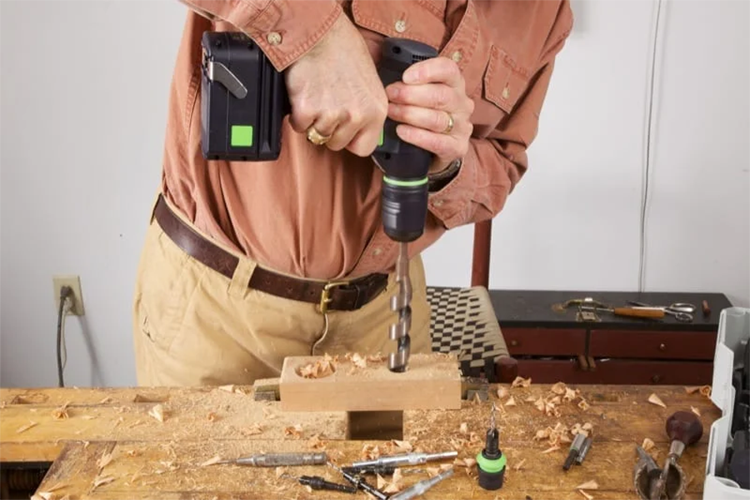Precision Wood Drilling: Choosing the Right Drill Bit for the Job
In industrial and professional woodworking, performance is everything. Whether you’re managing production for cabinetry, millwork, or structural timber, the choice of drill bit to make holes in wood can directly impact efficiency, tool life, and final product quality.
Understanding the Mechanics of Wood Drilling
Wood, unlike metal or composite materials, responds differently to heat, pressure, and cutting motion. A good drill bit to make holes in wood needs to address:
Clean entry and exit points to avoid tear-out
Effective chip ejection to reduce clogging
Controlled heat buildup to prevent burning or softening the material
That’s why most woodworking applications rely on specialized geometries and coatings—not just general-purpose twist drill bits.
Technical Comparison of Wood Drill Bit Types
Drill Bit Type | Use Case | Pros | Limitations |
Brad Point Bit | Precision joinery, cabinetry | Clean, accurate holes; minimal splintering | Not ideal for metal/plastic |
Spade Bit | Rough carpentry, construction | Fast, cost-effective for large holes | Tear-out; rougher finish |
Auger Bit | Timber framing, deep boring | Deep, clean cuts with efficient chip flow | Can bind in wet or resinous wood |
Forstner Bit | Furniture, doweling, concealed hinges | Flat-bottomed holes; high accuracy | Requires drill press for best results |
Each drill bit type has distinct flute design, point geometry, and cutting edge sharpness to match specific performance needs.
What Buyers Should Consider
If you’re sourcing drill bits to make holes in wood at scale, the following technical specifications are worth looking at:
Point Angle & Spur Design – For accurate positioning and reduced walking
Coatings (Black Oxide, Titanium) – Improve heat resistance and bit lifespan
Shank Type (Hex, Round, Reduced) – Impacts compatibility with drills and CNC systems
Batch Consistency – Especially critical for OEM applications or kit assembly
Tolerances – Diameter accuracy is key for joinery and precision doweling
The Role of the Manufacturer
Choosing a reliable manufacturer isn’t just about price—it’s about engineering support, customizability, and quality assurance. At Coinch Tools, we work closely with tool brands, wholesalers, and B2B buyers to produce drill bits optimized for wood, with controlled tolerances, tested hardness, and scalable packaging solutions.
Whether you need white-label products or want to develop your own spec with specialized flute geometries, we provide technical insight and manufacturing flexibility.
A high-quality drill bit to make holes in wood is more than a consumable—it's a precision tool that contributes to the quality of your finished product. For B2B buyers focused on long-term performance and reliability, choosing the right type—and the right supplier—makes all the difference.


